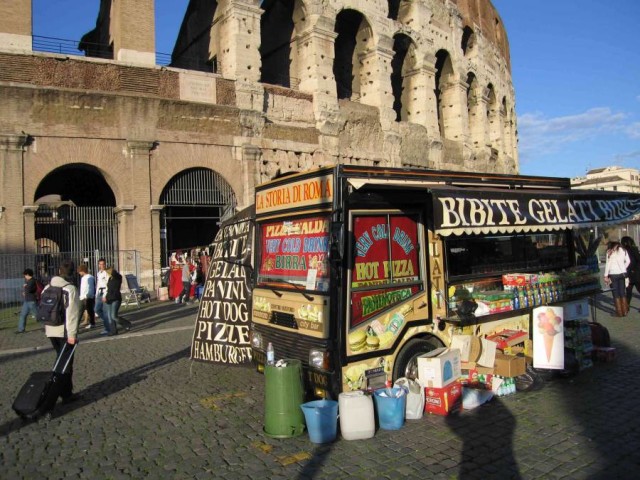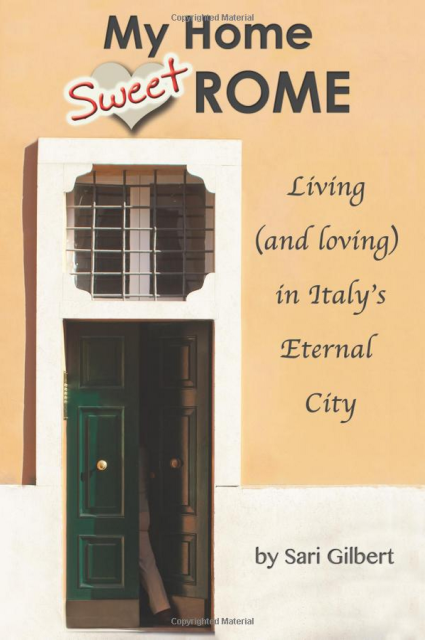Has Rome’s mayor won at least one battle? Tomorrow will tell.
A Rome administrative court, the TAR, this week ruled that the city of Rome is within its rights to ask licensed peddlers to move their trucks and stands away from the Eternal City’s archeological monuments by this Friday, July 10. The camion-bar – small refreshment trucks− and souvenir stands have continued to set up shop in ways that block the views of ancient monuments such as the Coliseum. The commercial enterprises involved include 22 camion-bar, 43 souvenir stands and 11 florists, for a total of 76, most of which are said to be owned by the somewhat notorious Tredicine family whose various enterprises – watermelon stands, snack trucks, chestnut sellers,, and clothing –are believed to be worth more than 25 million euros. The family has been buying up licenses since the 1950s and appealed to the court on the grounds that national regulations state that a stand cannot be moved other than to a position that is equally remunerative, in this case impossible. But recently, parliament changed the existing law so that no legal obstacle prohibited the city administration from making changes.
This means that starting tomorrow the stands and trucks have to move. The 22 camion bar have been re-assigned spots in other areas of Rome including Lungotevere Oberdan, Testaccio, Piazza della Vittoria, delle Armi Viale Maresciallo Diaz, via Marmorata, via Beniamino Franklin, via Antonino di San Giuliano, Piazza Albania, Largo Diaz, via della Piramide Cestia and Piazza del Fante.
The 43 souvenir stands, here called “urtisti” although goodness knows why, are to set up along Via di San Gregorio, on the side across from the Coliseum and the Palatine Hill. Three florists will be moved to Piazza di Spagna and the remaining 8 elsewhere.
Will the administration of Mayor Ignazio Marino follow through with by fining those who do not obey and confiscating their goods? This remains to be seen.
The main problem is that the spaces left free by the camion bar may quickly be occupied by some of the hundreds of illegal peddlers, mostly foreigners but not only, who crowd central Rome’s sidewalks. The city’s prefect, Franco Gabrielli, has promised to constitute a task force to see that this does not happen, but Rome is not known for the ability of its police forces to follow through on issues of this sort.
So far the mayor – for reasons known only to himself – has allowed these illegal peddlers to occupy spaces throughout the city despite the fact that they have no licenses, no permits to occupy public soil, do not pay any taxes and compete unfairly with the city’s stores. His lackadaisical response to this problem is, to my mind, a damning one.



